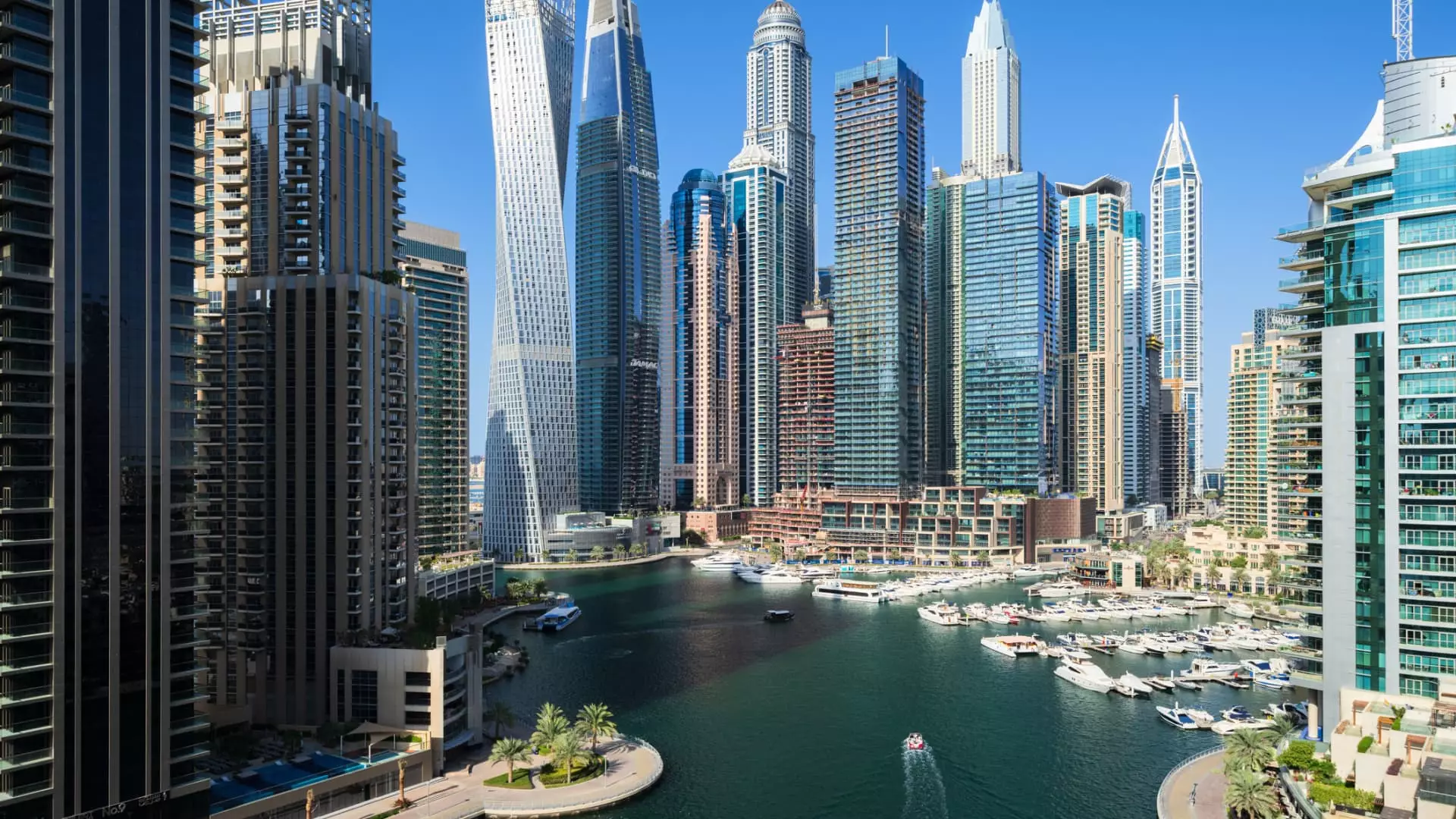Dubai, known for its glitz and glamour, has been experiencing a property market boom that shows no signs of slowing down. With 2024 poised to be another record-breaking year in terms of sales figures and property values, the city’s real estate landscape is reflecting unprecedented growth. The high demand for property, especially in the luxury segment, is driving up prices not only for housing but for all commodities in the city. This surge in demand comes at a time when the United Arab Emirates is positioned to be the world’s top wealth attractor for the third consecutive year.
Hussain Sajwani, the chairman of Dubai’s property giant Damac, has voiced his apprehensions about the rising cost of living in the city. He has highlighted the challenges posed by the influx of skilled individuals and average citizens, leading to increased competition for resources such as school seats. As demand continues to outstrip supply, prices are expected to soar, resulting in heightened inflation. Sajwani emphasized the need for government intervention to address the affordability issue in Dubai amidst the continuous influx of residents.
Recent figures from the Dubai property market depict a narrative of escalating demand. In July 2024 alone, property sales soared to 49.6 billion dirhams ($13.5 billion), marking a substantial 31.63% surge from the same period in 2023. With over 43,000 property transactions valued at approximately AED 122.9 billion recorded in the first half of 2024, the market has witnessed a remarkable 30% increase year-on-year. The rapid absorption of new inventory has been cited as a key driver behind this growth, with an estimated 80% of units launched since 2022 already being sold.
According to Sajwani, the demand for Dubai properties is bolstered by the city’s appeal to individuals across various economic strata. From taxi drivers to business professionals, Dubai has become a magnet for both wealthy individuals and talented workers. The emirate’s proactive measures during the Covid-19 pandemic, such as offering visas for remote workers and entrepreneurs, have further enhanced its global attractiveness. Sajwani underscored Dubai’s evolution into a diverse and dynamic city that continues to draw talent and businesses from around the world.
Dubai has weathered turbulent property cycles in the past, notably during the 2008-2009 financial crisis when the market experienced a severe downturn. Sajwani, however, expressed confidence in the current regulatory framework, which he believes has significantly reinforced market stability. Stringent regulations imposed by the Dubai government post-crisis have imposed strict standards on developers, customers, and zoning practices. These measures have been instrumental in ensuring a more resilient real estate environment, offering greater security for investors and residents alike.
Dubai’s thriving property market presents a complex dichotomy of opportunities and challenges. While the record-breaking sales figures underscore the city’s appeal as a global investment hub, the escalating prices raise concerns about affordability and inflation. The balancing act between fostering growth and maintaining accessibility will be crucial for Dubai’s sustained prosperity in the years to come.

